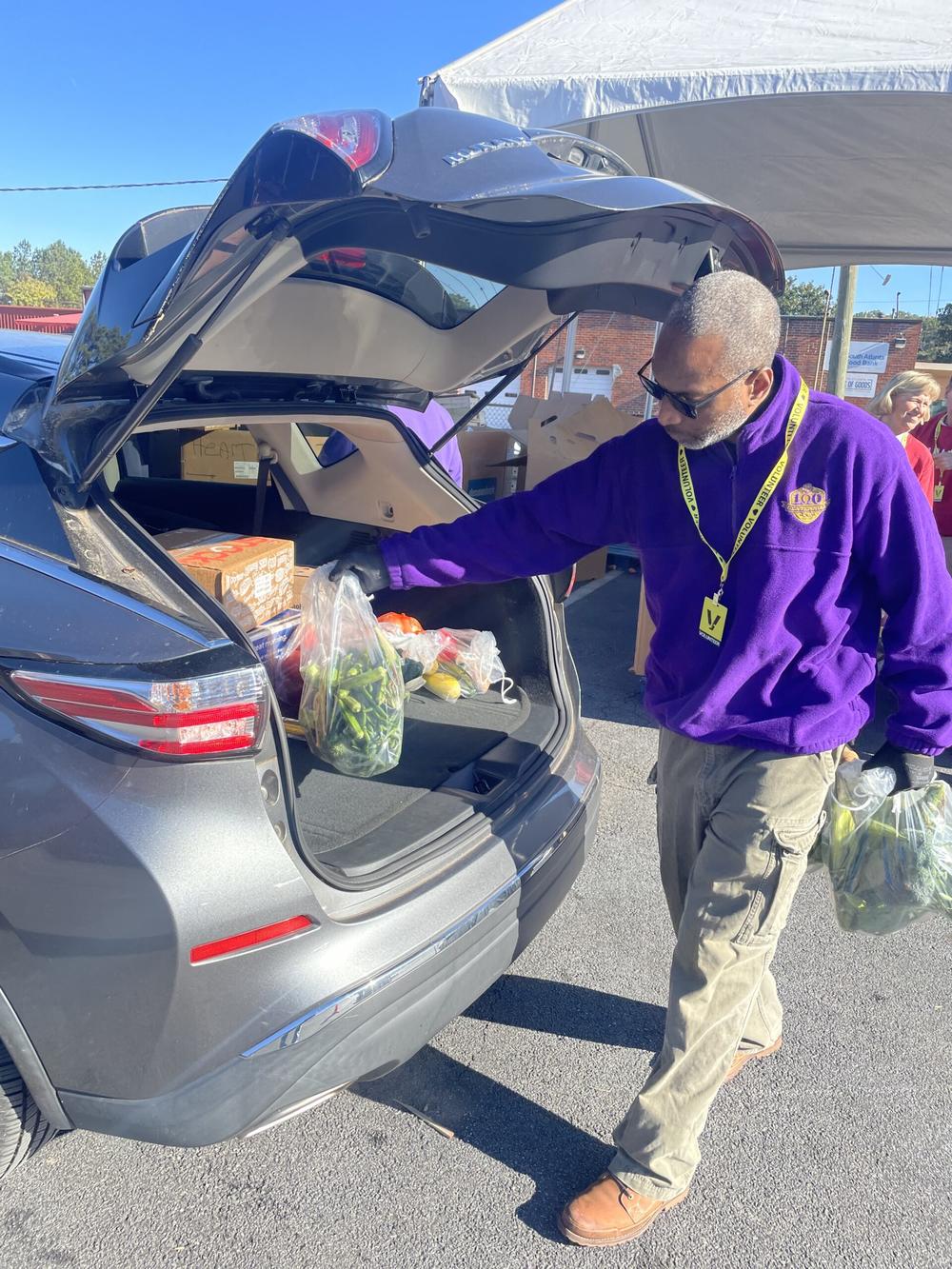
Caption
Caring For Others hosted its 24th annual food and household goods distribution event on Nov. 23 in Atlanta. The nonprofit distributed to several hundred families poultry, vegetables and other Thanksgiving fixings along with household goods like blankets and comforters.
Credit: Photo from Caring For Others

